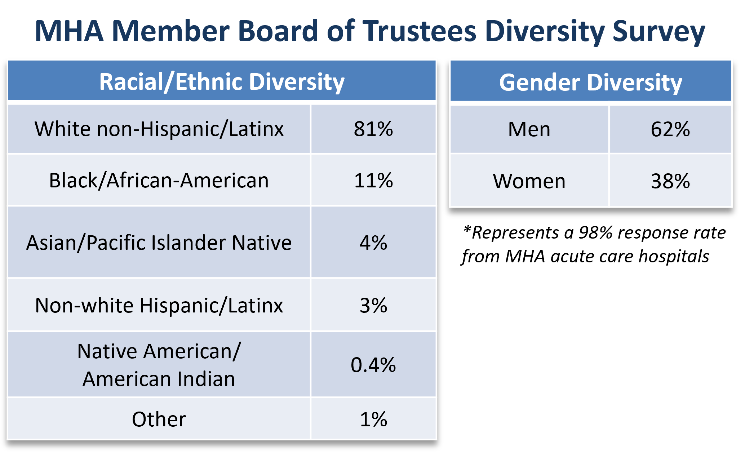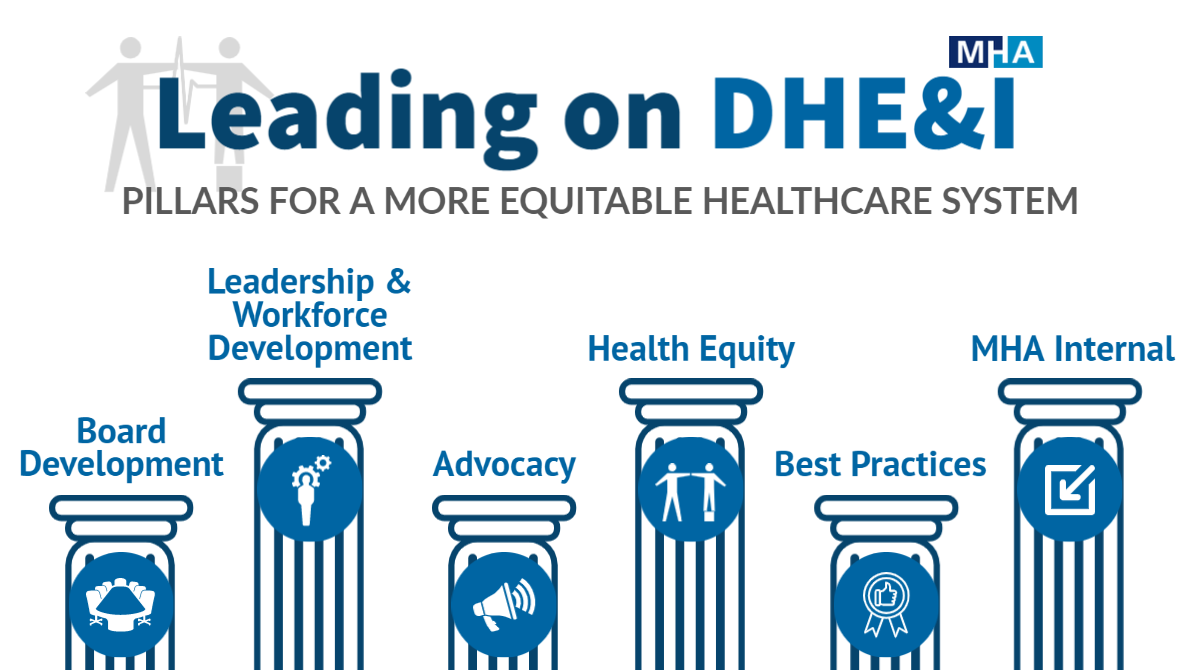DHE&I: Focus on Board Development

Evidence has shown that health outcomes improve when healthcare organizations’ caregivers and decision-makers reflect the diverse backgrounds of patients, facilities, and communities — starting at the top with boards of directors and trustees. By stressing a statewide commitment to board diversity, Massachusetts hospitals and health systems are actively working to ensure that they are representative of the communities they serve.
“We are continually inspired by the healthcare community’s drive to lead and make Massachusetts a more inclusive, equitable place to live. Our leaders have made it clear that board diversity is a priority that every organization can embrace and use to create change. We feel compelled to share this approach with all our partners as we combat systemic racism and longstanding inequities together.”
MHA President & CEO Steve Walsh
MHA is leading by example, working in recent years to incorporate more diverse voices into its own Board of Trustees. Since 2017, MHA’s board has grown from 7% to nearly 25% racially/ethnically diverse, and from 31% to almost 50% women.

MHA conducted a first-ever survey of board demographics among Massachusetts hospitals that showed, in the aggregate, their boards of trustees are nearly 20% racially/ethnically diverse and almost 40% women. These findings reflect the concerted work that healthcare organizations have already done to diversify their governing boards – and the ample work still to be done. The survey also provides a benchmark against which they can measure their progress and track their improvement
“The pandemic has cast a new light on our widespread societal failure to address systemic inequalities in our healthcare delivery system. There is no better time than now to unite and commit to eliminating these inequities, especially those affecting our most underserved and vulnerable populations.”
Dr. Kevin Churchwell, President & CEO, Boston Children’s Hospital
This strategy — developed by MHA’s Standing Committee on Diversity, Health Equity, and Inclusion — is built around six key pillars: board development, leadership and workforce development, advocacy, health equity, best practices, and MHA’s own work as an association. The effort is ongoing and will be led in part by MHA’s Vice President of Health Equity.

MHA has developed go-to forums for open dialogue and education across the healthcare community, both at the local and national level. This work will continue, as MHA leverages partnerships with organizations such as the Massachusetts Medical Society, the Massachusetts Chapter of the American College of Healthcare Executives, and the National Association of Health Services Executives.

MHA’s DHE&I Priorities
MHA’s Standing Committee on Diversity, Health Equity & Inclusion (SCODHEI) established six guiding priorities to advance DHE&I across the healthcare system.

 Massachusetts Health & Hospital Association
Massachusetts Health & Hospital Association